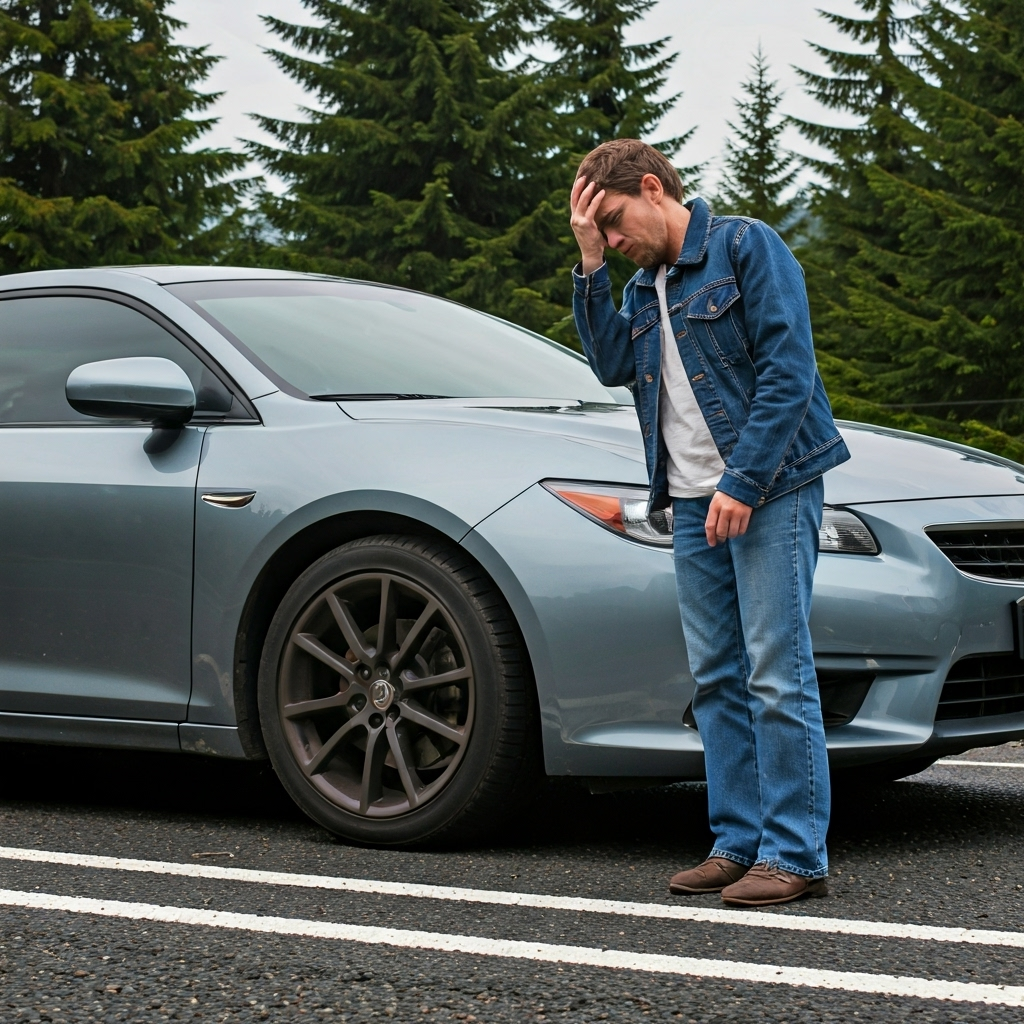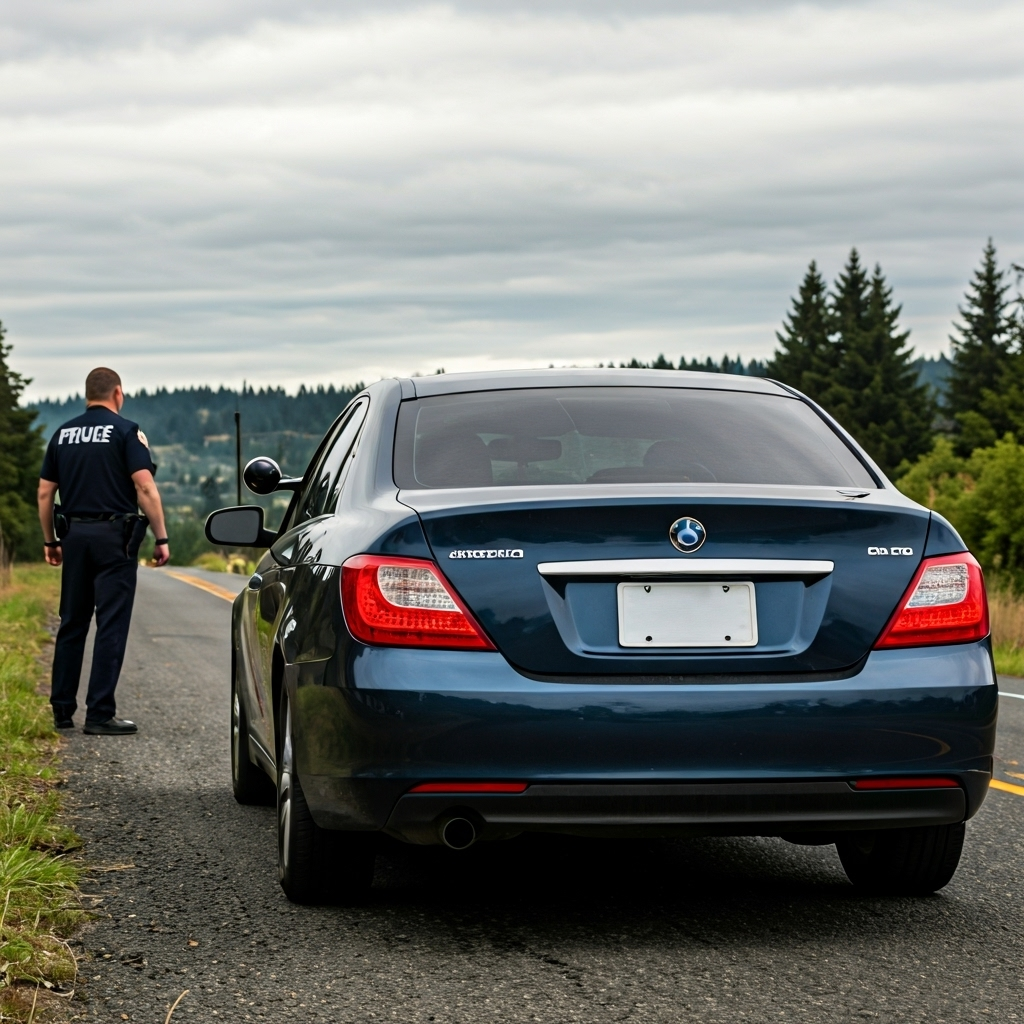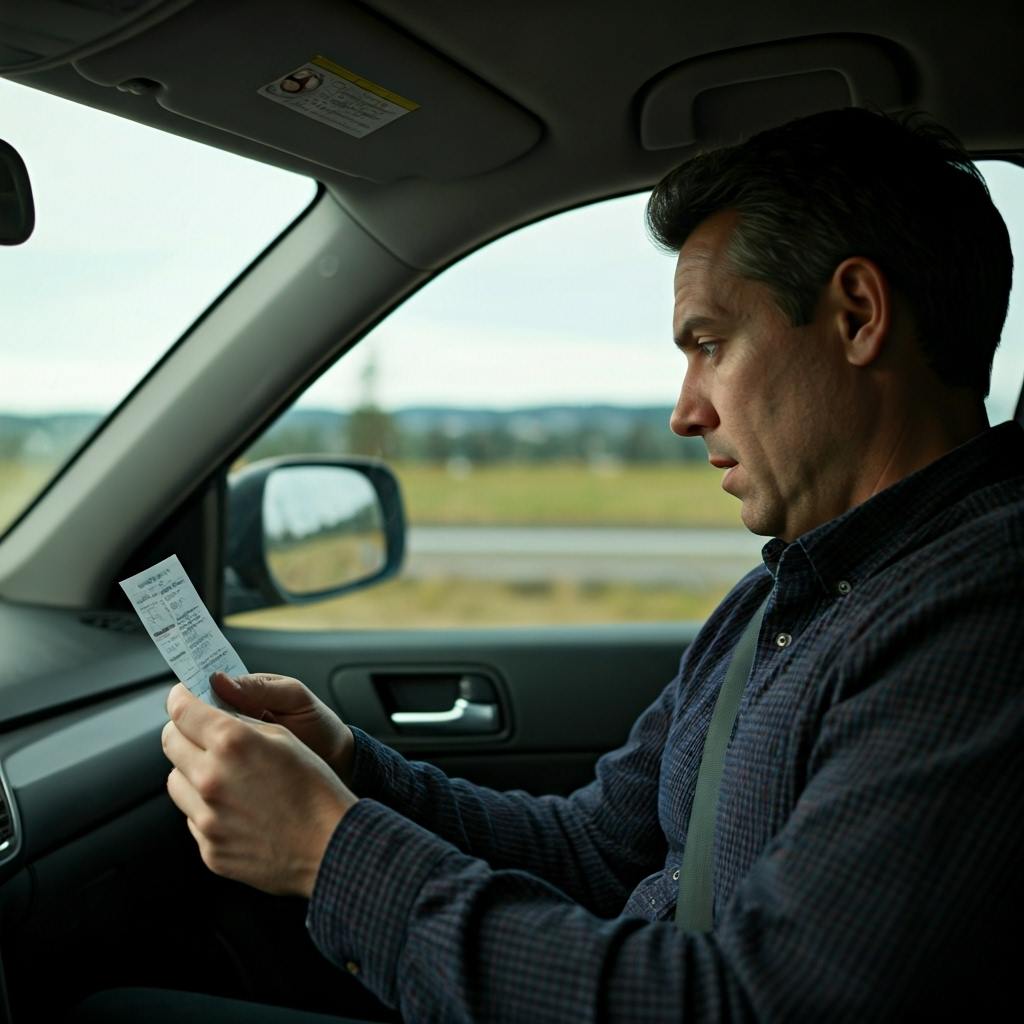Full Breakdown: How to Beat a Speeding Ticket in Washington

Key Highlights
- Understand the essential steps to dispute a speeding ticket in Washington State and protect your driving record.
- Learn the difference between a mitigation hearing and a contested hearing when resolving a traffic infraction.
- Discover how a single speeding ticket impacts your insurance premiums, leading to increased car insurance rates.
- Get insight into valuable documents and evidence, such as police reports, that can strengthen your case.
- Explore immediate actions to take when pulled over by a Washington State Trooper to avoid mistakes.
- Find practical tips to navigate the process and potentially save hundreds in long-term costs.
Introduction
Getting a speeding ticket in Washington State can affect you in many ways. This is a common traffic infraction that can cost you money. It can also go on your driving record and may raise your car insurance premiums. When you get a speeding ticket, you might not know if you should pay the fine, ask for a hearing to lower the penalty, or try to fight the ticket. The whole process can look hard at first. But there is a way to handle it well if you plan carefully. In this guide, we will show you some simple steps and tips to help you fight a speeding ticket in Washington State. With these ideas, you can deal with the problem and protect your driving record and your insurance premiums.
Understanding Speeding Tickets in Washington
 In Washington State, you can get a speeding ticket if you go over the posted speed limit. Each situation is different. You might get a ticket because you drove faster than you should in a certain area or because you went faster than other cars around you. It is important to know that in Washington, breaking the speed limit is not a crime. These are treated as civil infractions, not as criminal offenses.
In Washington State, you can get a speeding ticket if you go over the posted speed limit. Each situation is different. You might get a ticket because you drove faster than you should in a certain area or because you went faster than other cars around you. It is important to know that in Washington, breaking the speed limit is not a crime. These are treated as civil infractions, not as criminal offenses.
When these infractions go to court, the judge will use what is called the “preponderance of the evidence” standard. This means the judge looks at all the facts and decides if it is more likely than not that you did what you are accused of. It is good to keep this in mind if you want to fight your ticket in Washington State.
Common Reasons Drivers Get Pulled Over
There are many times when a police officer may stop you. One common reason is going over the posted speed limit. This moving violation happens often, especially on highways like I-5. Police usually watch busy roads and look out for people who do not keep the right speed.
Another big reason is moving from one lane to another the wrong way or driving too aggressively. If you drive in a reckless way, weave between lanes, or shift lanes without using your signal, a police officer can notice you fast. Many people do not even get that the way they drive can lead to a citation until it happens.
Police may also pull you over if your car has equipment issues. Things like broken tail lights, old registration tags, or window tints that are too dark can make an officer stop you. Even though these seem small, they can become more serious, especially if you are also speeding. So, it is important to know your duties on the road and follow both the law and your own sense of safety.
Types of Speeding Violations in Washington
Washington State sorts speeding violations into different levels. This helps officers check how serious a traffic infraction is. Most people get a speeding ticket for driving over the posted speed limit. Even if it is only a few miles per hour over, that can get you a ticket. Washington State uses a “per se” speed limit, so if you go over the posted speed limit—even a little—that is not allowed.
Going much faster than the limit is called excessive speeding. If you drive, for example, 20 mph over the posted speed limit, you can get a much bigger fine and face tougher penalties. If you get caught speeding in a school or construction zone, the traffic infraction can be even worse because it is much more dangerous there.
There is also negligent driving in Washington State. This often means driving in a reckless way, like speeding with no care for others. Breaking this rule could put people at risk. That is why it is so important for drivers to always know and follow the traffic laws.
Consequences of a Speeding Ticket
 A speeding ticket brings more trouble than just paying a fine. When a moving violation goes on your driving record, you may have to deal with higher car insurance rates. Data shows that insurance premiums can go up by as much as 22% from only a single ticket, even if you had a clean driving record before.
A speeding ticket brings more trouble than just paying a fine. When a moving violation goes on your driving record, you may have to deal with higher car insurance rates. Data shows that insurance premiums can go up by as much as 22% from only a single ticket, even if you had a clean driving record before.
It does not just hit your wallet. Convictions can be a problem in finding or keeping jobs that need you to have a valid license. Because of this, you have to deal with these kinds of issues the right way if you want to avoid problems in the future.
Fines and Hidden Costs
When considering the cost of a speeding ticket in Washington, it’s important to account for both direct fines and hidden expenses like insurance premium increases. Below is a detailed breakdown:
| Category | Details |
|---|---|
| Speeding Ticket Fine | Base fine depends on mph over the limit, ranging from $50 to over $300. |
| Insurance Premium Hike | Increased rates for 3 years, averaging $177 annually for one ticket. |
| Deferred Finding Fee | Legal option costing typically $250-$300 in fee but avoids record impact if conditions are met. |
Beyond fines, paying a ticket without contest means potential surcharges from collection agencies if overlooked. These indirect costs amplify the financial burden, making contesting the ticket a more worthwhile endeavor.
Impact on Your Driving Record and Insurance
A single speeding ticket in Washington State can really hurt your driving record. It can also make your car insurance go up a lot. Every moving violation stays on your driving record for three years in the state. If you have always had a good record, getting just one ticket could keep you from getting the good-driver discounts that some people get.
Insurance companies set their prices based on risk. With their way of seeing things, even a small speeding ticket in Washington State makes you a bigger risk. This means you will pay higher insurance premiums for a long time. If you get more speeding tickets or other moving violations, you could end up paying a lot more for your car insurance because the costs keep going up.
To keep your money and driving record safe, you should act fast. This means thinking about things like asking for a deferral or fighting the ticket in a hearing. Both these steps can help you avoid a quick spike in your rates and try to stop problems from lasting for years.
What to Do When You Receive a Speeding Ticket
Getting a speeding ticket in Washington State can be stressful, but you need to act fast and think about what to do next. First, look at the front of the ticket to find all the important deadlines for your response. If you got your ticket in person, you have 15 days to reply. If your ticket came by mail, you get 18 days.
Think about what you want to do. You can pay the fine, ask for a mitigation hearing, or try to fight the ticket. Each choice will have some effect on your driving record and could change your insurance rates, so take time to pick the right option for your situation.
Immediate Actions to Take at the Traffic Stop
How you act after getting pulled over is very important when dealing with a speeding ticket. When you first stop at the side of the road, try to be calm. Do what the police officer tells you and don’t argue or say anything that could make things worse.
Key steps include:
- Providing your documents: Give your license, registration, and proof of insurance right away.
- Taking note: Look for details like the officer’s badge number and anything else about the stop. This can help you later if you need to talk about what happened in court.
- Asking questions: You can politely ask about your speed or the radar device they used. This may give you some ideas for your defense later.
These small things help you stay calm and gather what you need to deal with the ticket.
Reviewing the Citation Details
When you get the citation, look at the front of the ticket closely for any mistakes or missing information. Check the parts that list the offense, the location, and all deadlines.
If there is a problem like the wrong place or the wrong date on the ticket, this can help you in a contested hearing. Look to see if the ticket shows the posted speed limit and the speed you were driving. If these key details are missing or not clear, the person trying to prove you were wrong may have a weaker case.
Also, find out if the ticket was sent to the district court within five days. If it was not, this goes against the rules. This might give you a good reason to ask for your ticket to be dropped.
Beginner’s Guide: Preparing to Contest Your Speeding Ticket
If you decide to fight your speeding ticket, you need to get ready for a contested hearing. This is not like a mitigation hearing, since the contested hearing lets you try to get the speeding ticket dropped instead of saying you did it and asking for a lighter punishment.
To make your speeding ticket case strong, you should focus on two things. You should gather important documents, such as the police report. You also need to know about the traffic laws in Washington State. Being prepared like this helps you answer every claim, and helps you protect your driving record. Do you want to get started? Now, let’s go over the next steps.
Essential Documents and Evidence to Gather
Before you go to your contested hearing, you need to gather some important things. You should have these ready:
- Officer’s report: Ask for this report during “discovery.” It will help you know how the officer describes what happened.
- Photographic or video evidence: Check that any photos or videos match what really happened at the time.
- Maintenance records for radar equipment: If the device was not set up right, it may make your ticket not count.
- Witnesses’ statements: Find people who were there. Their words might help your side of the story.
By making sure that all of these things follow the legal rules, you will have a good defense in your contested hearing. You will also avoid making mistakes in how things should be done.
Understanding Washington Traffic Laws
To fight a speeding ticket well in Washington State, you first need to know the traffic laws in that state. Start by learning about the rules for speed limits and how the police check if someone breaks them. In Washington State, speeding is a “per se” violation. This means if you drive even a little over the speed limit, you are breaking the law.
Next, look into what is needed for Speed Measuring Device (SMD) certification. For example, if they cannot show up-to-date maintenance records for the SMD, this might help your case. Knowing about where to contest the ticket and the deadlines helps you follow the legal rules and makes sure you do not miss any important steps.
When you know these rules well, you will have a strong base to use for your defense at your hearing for the speeding ticket.
Step-by-Step Guide to Beating a Speeding Ticket in Washington
 Fighting a traffic ticket in Washington has a few steps. First, you will need to decide if you want to fight the ticket or try to lessen its impact. Think about how this could affect your insurance rates and your driving record over time before you make this choice.
Fighting a traffic ticket in Washington has a few steps. First, you will need to decide if you want to fight the ticket or try to lessen its impact. Think about how this could affect your insurance rates and your driving record over time before you make this choice.
Next, you have to ask for a hearing, and you must do this before the deadline on your traffic ticket. Get your defense ready by looking for any missing facts or errors in the case. This can help you when you go before the judge. Now, let’s go over the steps one by one in the next section to make things clear and help you get the best outcome.
Step 1: Decide Whether to Contest or Mitigate
The first thing you need to do when you get a speeding ticket is to decide between a mitigation hearing or contesting the violation. If you choose a mitigation hearing, you are saying you did it but you want the court to go easier on you because of the situation. With this, the fine may be lower, but the ticket will still be on your record.
If you decide to contest the ticket, you are saying that you did not do it, or you want the state prosecutor to prove by “preponderance of the evidence” that you are guilty. You should think about how this might change your insurance rates and how many tickets you have had before you make your final decision.
If it is most important to you to keep your record clean, then contesting your speeding ticket will usually work better.
Step 2: Request a Hearing and Submit Your Plea
To start a contested hearing, you need to answer the ticket within the given time. You have 15 days if the ticket was given to you in person. If you got it by mail, you have 18 days. Send your plea to the district court. Tell them if you want to contest the ticket or ask for a lower penalty.
When you file, make sure you follow the rules about how papers must be given to the court. It is better to use certified mail or to hand-deliver your forms. This way, you lower the chance of missing any deadlines. Look out for the mailbox rule. This adds more days if you send your papers by mail and the date falls on a weekend or holiday.
After you file everything the right way, wait for the district court to tell you your hearing date for the contested hearing. Use this wait time to get ready for your case.
Step 3: Build Your Defense—What to Look For
Building your defense in a traffic ticket case starts with looking for weak spots in the case against you. Focus on the points below:
- Discrepancies in officer statements: Check if things like the speed limit or radar reading really match what happened at the time.
- Errors in filing: Make sure the ticket was given on time and followed all deadlines set by the Washington court rules.
- Hearsay objections: Be sure that proof, like radar readings, is shown the right way and not without other support.
- Equipment certification gaps: Look at SMD maintenance records and see if there are any problems.
Using these ways can give you strong reasons for the judge to toss out your traffic ticket case and be more likely to say yes to you.
Step 4: Present Your Case in Court
Arriving at court is your last chance to speak to the presiding judge. You need to show your side of the story about the traffic infraction. You can use your documents, what the witnesses say, and any legal objection you have. Always show respect to the judge and the city prosecutor when you talk to them.
Try to keep everyone focused. You want to show there is reasonable doubt about if you really did the traffic infraction. The judge will use the “preponderance of the evidence” rule. When you talk about the case, challenge the proof given against you and the way things were done, but do this in a sure and calm way. It helps to make all arguments based on the law.
If you win, your moving violation can be dropped. Then, you keep your record clean and you do not have to worry about higher insurance bills.
Conclusion
In the end, dealing with a speeding ticket in Washington can feel hard. You need to know your rights and what the law says about traffic tickets. If you learn about the different kinds of tickets, what might happen, and the ways to fight a ticket, you will feel more in control. You are not the only one facing this. Many people go through the same thing. If you feel stuck, it is a good idea to talk to an expert or get legal help. This can give you a better chance to get a good result. Stay ready with the right information and tools so you can handle your speeding ticket with confidence.
Frequently Asked Questions
What are common defenses for beating a speeding ticket in Washington?
Common ways to defend yourself are to question if the radar device was right, point out if you were in the wrong place, or show if deadlines were missed. At a contested hearing, you can question if the evidence is correct and try to bring up reasonable doubt. This can help get your speeding ticket thrown out and keep your record clean.
Should I hire a traffic attorney or represent myself?
Hiring a traffic ticket attorney is a good way to get help from someone with the right skills. They know what to do so you can have a better chance to win your speeding ticket case. Your attorney will take care of getting ready for your speeding ticket case and talk in court for you. Usually, you will not have to be at court. For many, free case checks can show you which way is best for you. This can be very helpful if you want to fight a traffic ticket.
Can a speeding ticket be removed from my record?
Speeding tickets may not always go on your driving record. You can use a deferred finding or try to get the ticket dismissed in a contested hearing. This will help keep the ticket off your record and stop your insurance costs from going up. But you should know that there are limits. A deferred finding can only be used one time every seven years for moving violations, as the rules say.
What should I say to the judge to improve my chances?
At a mitigation hearing, talk about your clean driving record. Tell the judge how you got the single ticket, but do it in a calm and simple way. Try not to sound defensive, and do not say anything you cannot prove. Listen to the judge and respect the terms of service. This shows that you want to take responsibility for what happened with your driving record.
Call Now or USE contact form a for same-day response:








Thanks to their expertise, the fines were successfully dismissed, and I felt fully supported throughout the process. I highly recommend this attorney to anyone looking for reliable, knowledgeable, and truly dedicated legal help.


